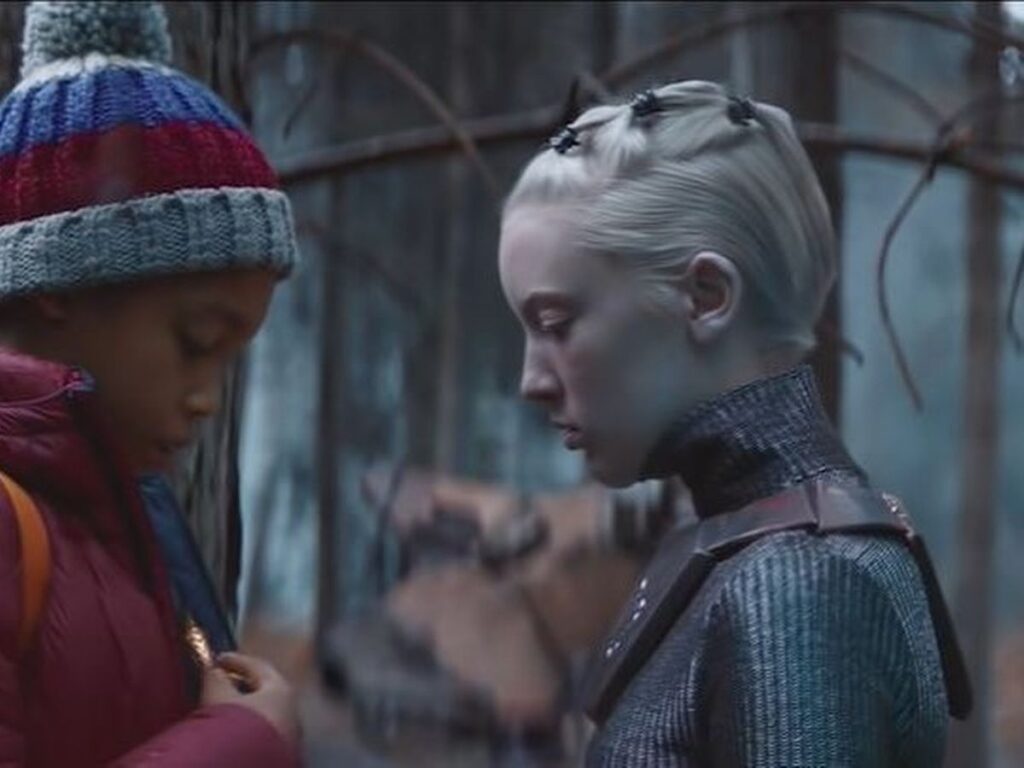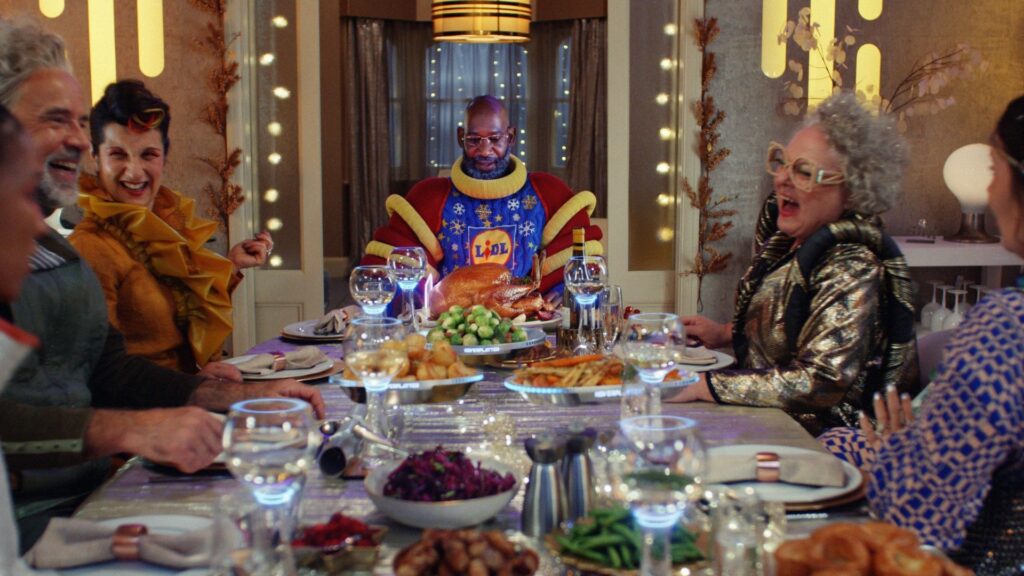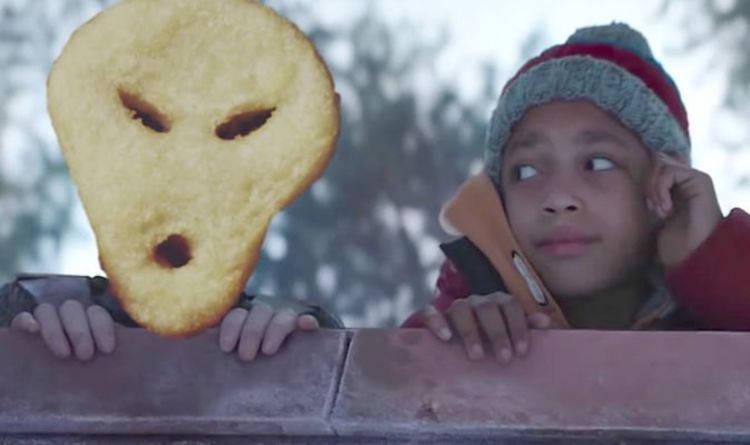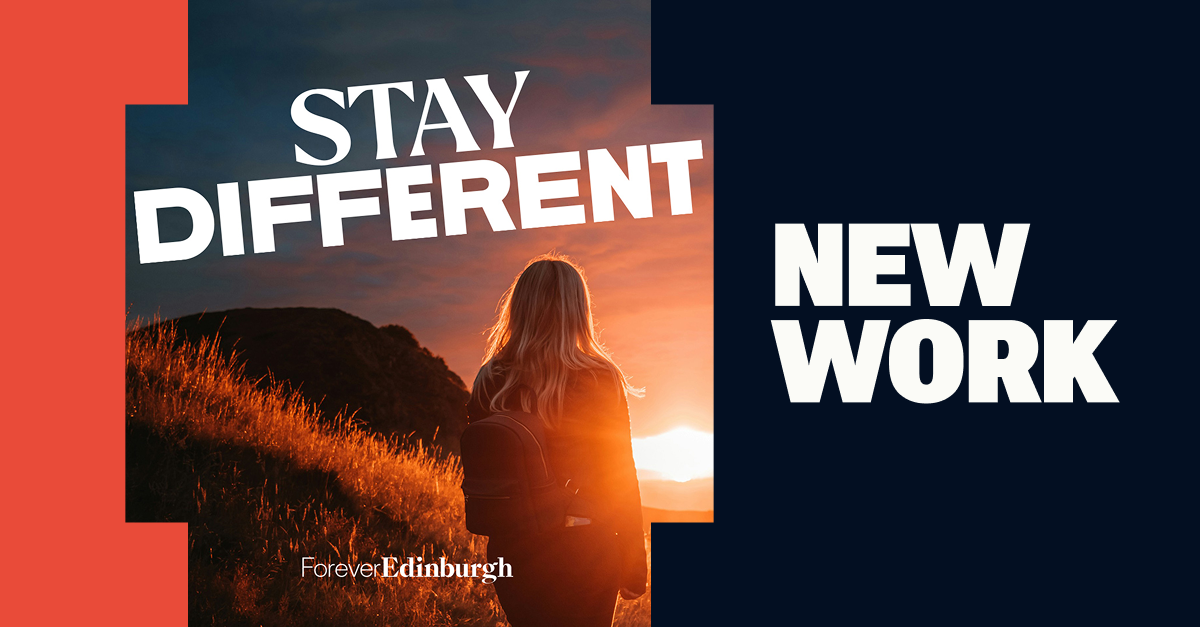No. I’ve not drained all the vintage port.
Nor have I polished off the chocolate Christmas stocking fillers.
Neither have I forgotten to pre-order the frozen turkey.
No. It’s that I’m dissing the new John Lewis Christmas ad.
[Shhh!]
Retailers have been working hard to make this Christmas all about the experience. A truly magical experience. And one to transport us away from the troubles of this past year. And so has John Lewis with their message “for a Christmas as magical as your first”.

The latest John Lewis ad: Human-boy meets alien-girl and they have a cultural exchange of sorts.
But are we feeling the magic this festive season, whether it be Christmas? Diwali? Or Hanukkah?
Eleventh hour government U-turns and aborted travel plans are less likely to be on our Yuletide horizon this year, but I doubt we’ll be looking to an angst-free festive season either.
The problem is: how do we feel Christmas-y when the world feels upside down? We’re only a headline, a news report or a radio call-in away from being reminded again and again about the Climate Emergency. It is no longer words on a page, nor the subject of an interesting debate. It feels real. And climate depression is also feeling very real for the many.
And then there’s Brexit. Remember that? Trade wars are bubbling away and waiting to dominate the headlines swiftly after COP26.
So what’s mostly on people’s minds? The pandemic, Brexit, saving our planet? Or getting those presents bought in time?
A quick poll of colleagues, family and friends and friends of friends tells me that many of us want to make loved ones feel even more loved and appreciated this year but we’re certainly not feeling the magic. We’re still nervous about COVID, rusty on the social-front – and actually, starting to question whether we should be buying as much as we usually do when we should be thinking about our carbon footprint.
I’d hazard a guess that a nationally representative UK opinion poll would not be too far off this picture.
The religious-aspect of Christmas aside, will this be the year that we start to feel differently about Christmas?
Just the other week, I felt Christmas had arrived when I saw the new John Lewis ad. It was heart-warming and the lovely cover track (‘We’ll always be together’) is a nod to the situation we might again find ourselves in as a result of COVID. There was also the usual nice touch of humour.
But I wonder whether that good feeling was muscle memory? A reflex. Because it wasn’t long before I was jolted back into the real world. Lovely as the ad is (and all the John Lewis ads are) - this year, it along with much of the other Christmas advertising wallpaper was starting to ring hollow.
Some Christmas ads are the ad break equivalent of shop windows - full of glitz, glamour and the anticipation of nice things. Others are more sentimental with messages around the gift of giving and the love we feel from receiving. Others still, like John Lewis and Sainsbury’s, take it to the more meaningful end of the spectrum. They like to tell a story around transformative moments, connection and seeing past our differences (a particularly memorable example being Sainsbury’s World War 1 inspired 1914 ad). John Lewis’s latest doesn’t break that mould.
However, blatant consumerism aside, when faced with an unresolved climate issue (the ‘blah blah blah’ of world politicians) - even these versions of the joyful spirit of Christmas might feel a little jarring.
So what’s the answer?
Cancel Christmas? Ban all Christmas advertising? Slap a fine on anyone who uses the words ‘heart-warming’?
Perhaps this is a time that calls for a different flavour of ad?
Iceland and Lidl’s latest Christmas offerings feel more post-COP, post-Brexit, nearly(?) post-pandemic appropriate. Cheeky and fun – but with a little bit of an edge.
In the Lidl ad, there’s the super-tech-empowered vegan dog determined to get its paws on the pigs-in-blankets, the gadget-confounded mum, the annoying uncle with a new girlfriend every time and the slightly awkward (and notably ironic) dinner table small talk (“How’s living forever?”). Lidl has cleverly placed their ad well into the future.

Lidl’s latest Christmas ad encourages us to look forward, not back.
And Iceland? Well, after their timely (and controversial) piece of corporate activism around Palm oil, they’ve managed to neatly slice through the Christmas advertising clutter again, with their spoofed John Lewis alien ad released only hours after the real thing. They have taken something near-sacrosanct and turned it into something for laughs. Connection across the divide anyone? Yeh. Blah blah blah. Have Ms Alien hash-brown head instead.

Iceland’s spoofed John Lewis’ Christmas ad
These ads are perhaps a more fitting counterpoint to this Christmas season than our usual Christmas advertising diet. Perhaps we need it in the same way we needed a counter-COP-summit to the main climate-change event. I’m sure Iceland checked with John Lewis. And actually, by saying yes – John Lewis has had the last laugh – doubling their exposure and boosting their brand.
I wonder whether we’ll see the marketing narrative around Christmas shift in emphasis in future years to come. Will it become less overtly commercial as more of us think twice about adding to our shoe, handbag or gadget collection? Will we see more reflective storytelling ads along the spiritual, meaningful end of the spectrum? Or will it always be a time where we quite happily accept marketers painting their Yuletide magic whatever the content?
Regardless of what happens – and however the cultural significance of Christmas evolves in these scary thought-provoking times - I’ll still be looking forward to seeing what John Lewis come up with next year.
Lisa King, Senior Planner
Since the writing of this article, it is interesting to note that John Lewis has announced a £1M ‘ideas fund’ aimed at ending the high street’s ‘throwaway culture’. This will channel cash into projects with the potential to reduce the environmental impact of the food, clothing and gadgets that we buy.



